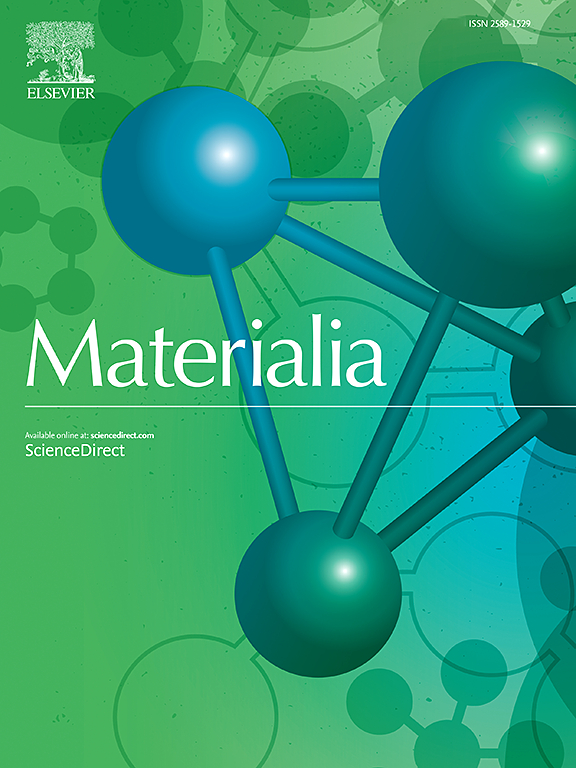Tensile properties and work hardening in Al0.3CoCrFeNi: The role of L12 precipitates and grain size
IF 2.9
Q2 MATERIALS SCIENCE, MULTIDISCIPLINARY
引用次数: 0
Abstract
In this study, we investigate the FCC-Al0.3CoCrFeNi high entropy alloy fabricated via spark plasma sintering of atomized powders, focusing on its mechanical and work-hardening properties across three distinct microstructures: coarse-grained, fine-grained, and fine-grained with L12 nano-precipitates. Using a dislocation density-based model, we analyze the effects of grain size and L12 precipitates on these properties, achieving quantitative agreement between model predictions and experimental tensile and work-hardening behaviors. This exploration highlights the underlying deformation mechanisms at room temperature and their contributions to the strength/ductility trade-off. Significantly, our analysis reveals that twinning in HEAs manifests differently from that observed in steels. Furthermore, the incorporation of L12 precipitates emerges as a critical factor enhancing the alloy's mechanical attributes. Our findings underscore the essential roles of microstructural parameters in tailoring the mechanical properties of HEAs, offering insights that could guide the design of advanced alloys with optimized performance.

Al0.3CoCrFeNi 的拉伸性能和加工硬化:L12析出物和晶粒大小的作用
在本研究中,我们研究了通过雾化粉末的火花等离子烧结制造的 FCC-Al0.3CoCrFeNi 高熵合金,重点研究了其在三种不同微观结构(粗晶粒、细晶粒和带有 L12 纳米析出物的细晶粒)下的机械性能和加工硬化性能。利用基于位错密度的模型,我们分析了晶粒大小和 L12 沉淀物对这些性能的影响,实现了模型预测与实验拉伸和加工硬化行为之间的定量一致。这一探索凸显了室温下的基本变形机制及其对强度/电导率权衡的贡献。值得注意的是,我们的分析表明,HEAs 中的孪生现象与钢中观察到的孪生现象不同。此外,L12 沉淀物的加入是增强合金机械属性的关键因素。我们的研究结果强调了微结构参数在定制 HEAs 机械性能中的重要作用,为设计具有优化性能的先进合金提供了指导。
本文章由计算机程序翻译,如有差异,请以英文原文为准。
求助全文
约1分钟内获得全文
求助全文
来源期刊

Materialia
MATERIALS SCIENCE, MULTIDISCIPLINARY-
CiteScore
6.40
自引率
2.90%
发文量
345
审稿时长
36 days
期刊介绍:
Materialia is a multidisciplinary journal of materials science and engineering that publishes original peer-reviewed research articles. Articles in Materialia advance the understanding of the relationship between processing, structure, property, and function of materials.
Materialia publishes full-length research articles, review articles, and letters (short communications). In addition to receiving direct submissions, Materialia also accepts transfers from Acta Materialia, Inc. partner journals. Materialia offers authors the choice to publish on an open access model (with author fee), or on a subscription model (with no author fee).
 求助内容:
求助内容: 应助结果提醒方式:
应助结果提醒方式:


